MercoPress. South Atlantic News Agency
Tag: World Health Organization (WHO)
-
Wednesday, May 24th 2017 - 09:15 UTC
Dr Tedros Adhanom Ghebreyesus elected next WHO Director General
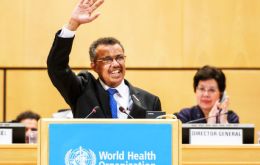
Members States of the World Health Organization (WHO) on Tuesday elected Dr Tedros Adhanom Ghebreyesus as the new Director-General of WHO. Dr Tedros Adhanom Ghebreyesus was nominated by the Government of Ethiopia, and will begin his five-year term on 1 July 2017.
-
Tuesday, May 23rd 2017 - 13:58 UTC
WMA leader wars about growing violence against physicians and healthcare

A warning about an increase in violence against physicians and a general disrespect for medical and health institutions in both civil and conflict situations has come from the Chair of the World Medical Association Dr. Ardis Hoven.
-
Thursday, April 13th 2017 - 07:17 UTC
Radical increase in water and sanitation investment required to meet development targets
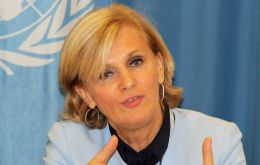
Countries are not increasing spending fast enough to meet the water and sanitation targets under the Sustainable Development Goals (SDGs), says a new report published by the World Health Organization (WHO) on behalf of UN-Water – the United Nations inter-agency coordination mechanism for all freshwater-related issues, including sanitation.
-
Friday, March 31st 2017 - 07:40 UTC
WHO dispatched 3.5 million doses of yellow fever vaccine for outbreak in Brazil
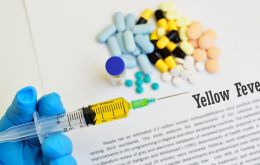
In response to the yellow fever outbreak currently on-going in Brazil some 3.5 million doses of vaccine from the emergency stockpile were deployed to the country through the International Coordinating Group (ICG) on Vaccine Provision for yellow fever.
-
Wednesday, March 1st 2017 - 17:11 UTC
WHO stresses urgent need for R&D for drug-resistant tuberculosis
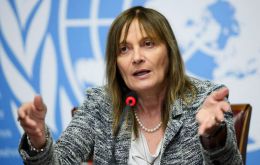
The World Health Organization reaffirms the critical need for research and development (R&D) of new antibiotics to tackle the threat of drug-resistant tuberculosis (TB). “Addressing drug-resistant TB research is a top priority for WHO and for the world,” said Dr Margaret Chan, WHO Director-General. “More than US$ 800 million per year is currently necessary to fund badly needed research into new antibiotics to treat TB.”
-
Thursday, February 16th 2017 - 10:27 UTC
Yellow fever vaccination recommendations for international travellers to Brazil
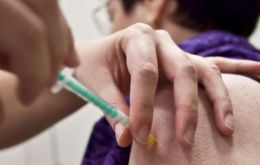
As of 13 February 2017, yellow fever virus transmission continues to expand towards the Atlantic coast of Brazil in areas not deemed to be at risk for yellow fever transmission prior to the revised risk assessment published by WHO in the Disease Outbreak News of 27 January 2017, and supported by the scientific and technical advisory group on geographical yellow fever risk mapping (GRYF).
-
Monday, November 7th 2016 - 21:57 UTC
WHO/Europe report calls for urgent action to protect children from digital marketing of food

For the first time, researchers and health experts have undertaken a comprehensive analysis of the concerning situation in the WHO European Region of digital marketing to children of foods high in fats, salt and sugars.
-
Monday, October 17th 2016 - 19:02 UTC
TB remains the leading infection killer in the world; global efforts to end the epidemic are falling far short
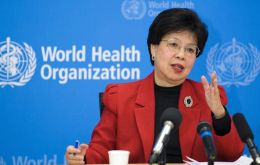
New data published by the World Health Organization (WHO) in its 2016 Global Tuberculosis (TB) Report show that countries need to move much faster to prevent, detect and treat the disease if they are to meet global targets. Governments have agreed on targets to end the TB epidemic both at the World Health Assembly and at the United Nations General Assembly within the context of the Sustainable Development Goals.
-
Thursday, October 13th 2016 - 10:19 UTC
WHO proposes taxing sugary drinks to reduce obesity, diabetes and tooth decay

Taxing sugary drinks can lower consumption and reduce obesity, type 2 diabetes and tooth decay, says a new WHO report. Fiscal policies that lead to at least a 20% increase in the retail price of sugary drinks would result in proportional reductions in consumption of such products, according to the report titled “Fiscal policies for Diet and Prevention of No communicable Diseases (NCDs)”.
-
Sunday, June 19th 2016 - 10:08 UTC
Mate and coffee fine to drink as long as they are not hot beverages, says WHO cancer agency

An international Working Group of 23 scientists convened by the International Agency for Research on Cancer (IARC), the cancer agency of the World Health Organization (WHO), has evaluated the carcinogenicity of drinking coffee, mate, and very hot beverages.
